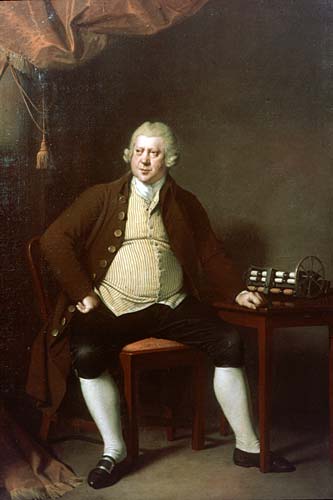Zdroj: The Case of Mr. Richard Arkwright and Co., 1781, p. 22-23
Richard Arkwright: Citáty anglicky
Zdroj: The Case of Mr. Richard Arkwright and Co., 1781, p. 23
The case, 1782
The case, 1782
Zdroj: The Case of Mr. Richard Arkwright and Co., 1781, p. 23-24
he hopes to be relieved by Parliament, from the consequences of an unintentional error.
The case, 1782
Zdroj: The Case of Mr. Richard Arkwright and Co., 1781, p. 24
by injuries from mobs, and from fire. The saving of labour by this machinery is several hundred thousands per annum, and yet trade is so greatly increased, that many more people are employed, and can earn a comfortable maintenance, than were employed before. The same inventions maybe applied with equal advantage to prepare and spin wool.
The case, 1782
